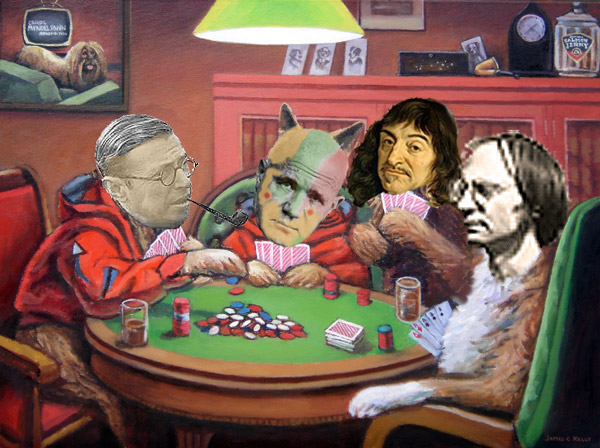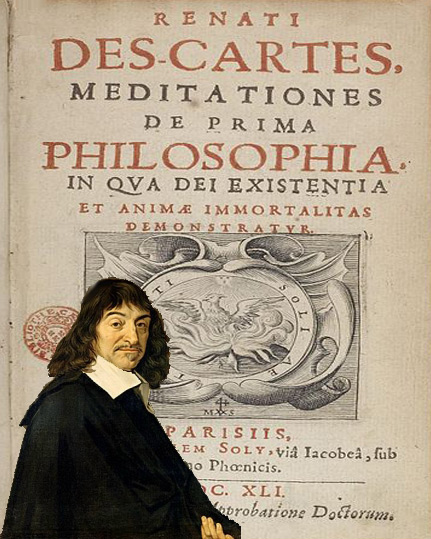One night, Daphne and I attended
Lindsay Kemp's 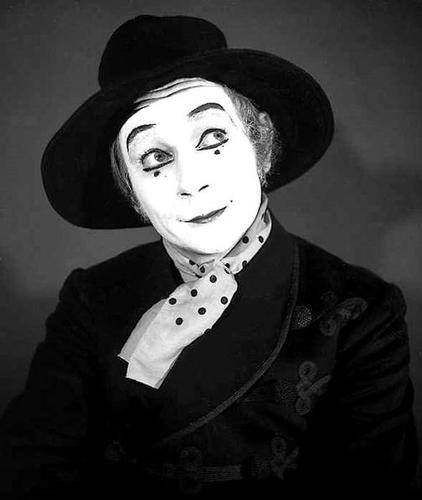 Flowers, a mime drama based on Jean Genet's Our Lady of the Flowers. The play had premiered last year in 1974 at the
Bush Theater.
Flowers, a mime drama based on Jean Genet's Our Lady of the Flowers. The play had premiered last year in 1974 at the
Bush Theater. This time the stage crew got the lighting right. They had to or else its dramatic theme of dark versus light would not have worked at all. During the dark scenes, we could hear animal cries and violent acts — the realities of evil. During the light scenes, we witnessed silent fantasies played out in vibrant colors. Genet wrote the play to escape into his mind from the harshness of his prison life — a similar situation motivates me to write this journal of fading memories. My prison, however, is one of a
fading body.
As my ole mammy use to say
This time the stage crew got the lighting right. They had to or else its dramatic theme of dark versus light would not have worked at all. During the dark scenes, we could hear animal cries and violent acts — the realities of evil. During the light scenes, we witnessed silent fantasies played out in vibrant colors. Genet wrote the play to escape into his mind from the harshness of his prison life — a similar situation motivates me to write this journal of fading memories. My prison, however, is one of a
fading body.
As my ole mammy use to say
This old age is killing me.
Or maybe Yogi Berra said it first?
I had been a
Jean-Paul Sartre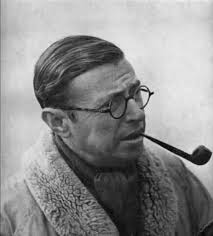 fan since before I began my philosophy courses at Vanderbilt. One of his books was an existential analysis of
Jean Genet,
fan since before I began my philosophy courses at Vanderbilt. One of his books was an existential analysis of
Jean Genet, 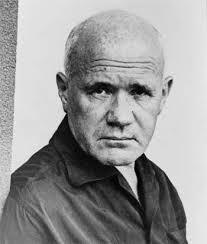 his psyche and morals, titled
Saint Genet.
his psyche and morals, titled
Saint Genet.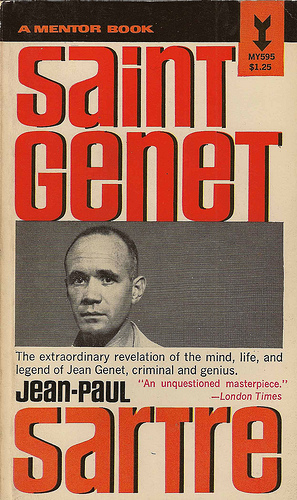 Sartre wanted to prove that human freedom was always possible no matter what our situation, and moreover this freedom allowed us to change our reality however horrible.
Sartre wanted to prove that human freedom was always possible no matter what our situation, and moreover this freedom allowed us to change our reality however horrible.
Admittedly, I never understood Sartre all that much. I could never accept the
Cartesian dichotomy
That's the problem with all dichotomies — simple minded — yet inevitable in the evolution of a thought. Ideas begin in duality — being v. nothing, light v. dark, hi v. lo, in v. out, etc. Then the duality becomes a sequence of gray shades despised by conservative fundamentalists. Then the sequence becomes a continuous line for mathematicians to ponder over incessantly. The mind, like nature, abhors emptiness. But where is the difference between mind and nature?
the French bequeathed us where we are divided into a mind on one side and a body on another.
This duality raises too many
unanswerable questions, 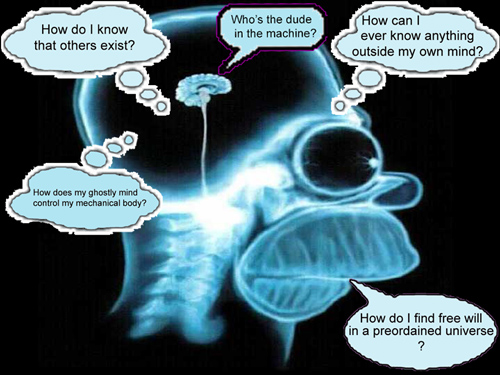 like where is the mind
ghost
like where is the mind
ghost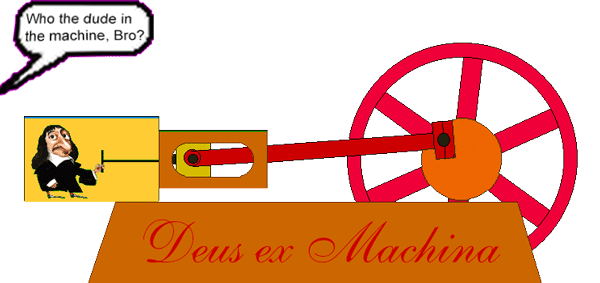 that lives in the body machine?
Is the ghost free to leave?
In my freedom, I have created a world that is one unified body-mind-spirit. In this world, we have physical dimensions existing in space-time that can therefore be measured and studied scientifically. We have minds that extend us into a
fifth dimension
that lives in the body machine?
Is the ghost free to leave?
In my freedom, I have created a world that is one unified body-mind-spirit. In this world, we have physical dimensions existing in space-time that can therefore be measured and studied scientifically. We have minds that extend us into a
fifth dimension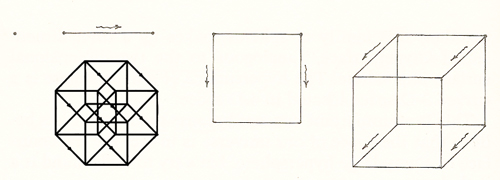 through memory and imagination, enabling us to travel through time, and is therefore the subject of the arts and humanities. And we have a sixth dimension of spirit that allows us to transcend space and stop time, which is the true study and purpose of religion.
through memory and imagination, enabling us to travel through time, and is therefore the subject of the arts and humanities. And we have a sixth dimension of spirit that allows us to transcend space and stop time, which is the true study and purpose of religion.
The mythological part of religion is for the children — like Santa Claus — fun sometimes, but not the essence of religious intent. There are likely many more dimensions of human-being yet to be discovered. How will you create your world? Will you accept Descartes' dichotomy and Newton's space-time? It's just common sense, you know. Don't you trust common sense?
